Volcanoes
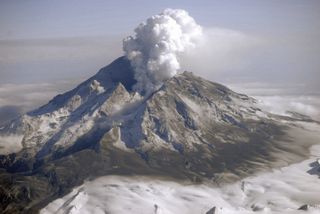
The U.S. Geological Survey defines a volcano as a vent in Earth's surface, either on land or on the seafloor, from which molten rock called magma, as well as ash and gases, can erupt or ooze. Different types of volcanoes erupt in different ways, with some erupting spectacularly and others, most notably Hawaii's shield volcanoes, steadily oozing lava. There are different types of volcanoes, including stratovolcanoes, shield volcanoes and cinder cones, and different types of lava and other volcanic flows. Volcanoes can be active, dormant or extinct. Most of Earth's volcanoes are located along the Pacific Ring of Fire, where many of Earth's tectonic plates subduct beneath another plate. Currently volcanic eruptions cannot be predicted, though most of the big, active volcanoes are routinely monitored and authorizes warn when they think an eruption is likely. Read below for the latest news on volcano monitoring and research, current volcanic eruptions and to see amazing pictures of volcanoes.
Latest about Volcanos
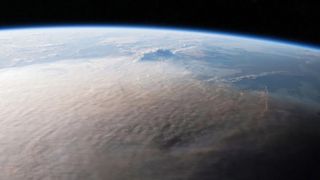
Tonga eruption that poured 150 metric megatons of water vapor into the stratosphere affected the atmosphere for years
By Rebecca Owen, Eos.org published
A new study builds on previous research into the underwater volcano's effects on the climate.
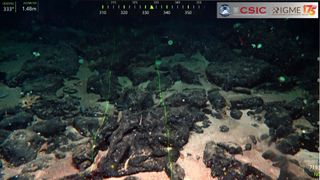
'This could be the origin of the Atlantis legend': Mountain that sank beneath the waves discovered off Canary Islands
By Hannah Osborne published
A large seamount with three inactive volcanoes that sank into the ocean millions of years ago off the coast of Lanzarote may have inspired the legend of Atlantis.
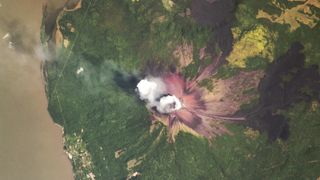
'Smoking terror' volcano that destroyed city 400 years ago burps toxic cloud
By Harry Baker published
Earth from space A 2018 astronaut photo shows Nicaragua's active Momotombo volcano spitting out a cloud of toxic gas and steam just a few years after its latest eruption.
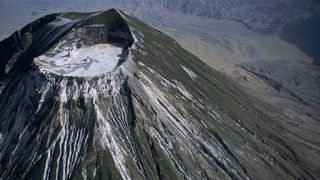
Volcano in Tanzania with weirdest, runniest magma on Earth is sinking into the ground
By Sascha Pare published
Tanzania's outlandish Ol Doinyo Lengai volcano, the only volcano on Earth that is currently erupting carbonatite lava, has been sinking at a rate of 1.4 inches per year for the past decade.
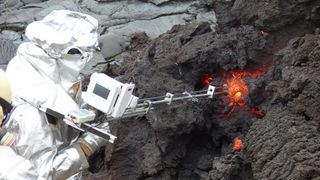
Weird new device measures how 'liquid' lava is
By Rebecca Owen published
A new device helps scientists measure lava viscosity during active flows.

An undersea eruption rocked the Aegean 520,000 years ago
By Molly Colleen McCanta published
Scientists discovered an unknown volcanic eruption that rocked the seafloor in the Aegean more than 500,000 years ago.
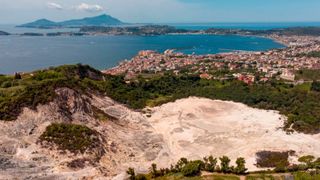
Italy's Campi Flegrei volcano hit by 150 earthquakes in just 5 hours
By Sascha Pare published
Europe's awakening Campi Flegrei volcano experienced its biggest seismic swarm in 40 years, with 150 earthquakes rocking the region in southern Italy in the evening of May 20.
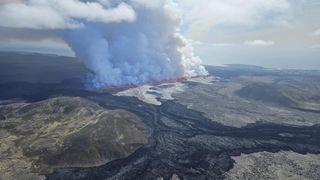
Iceland volcano eruption throws spectacular 160-foot-high wall of lava toward Grindavík
By Sascha Pare published
Icelandic authorities said residents and emergency responders should be ready to evacuate Grindavík at short notice after a new and ongoing eruption on the Reykjanes Peninsula.
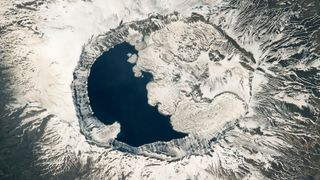
Majestic 'yin-yang' crater sits atop a dormant volcano in Turkey
By Harry Baker published
Earth from space The massive caldera of Turkey's Mount Nemrut volcano is split in half, with one side made of solidified lava flows and the other half a deep crater lake. Covered in snow, the summit scene looks like the yin-yang symbol when viewed from above.
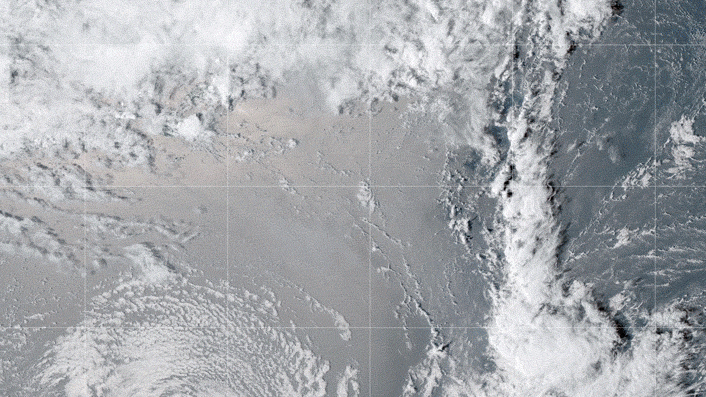
Record-shattering Tonga volcanic eruption wasn't triggered by what we thought, new study suggests
By Sascha Pare published
Scientists think Tonga's record-breaking 2022 eruption was triggered by gas building up to a "critical point" rather than by a reaction between magma and seawater as previously assumed.
Sign up for the Live Science daily newsletter now
Get the world’s most fascinating discoveries delivered straight to your inbox.
